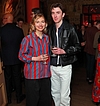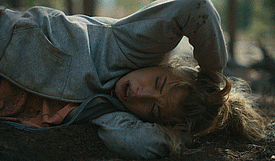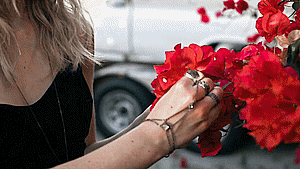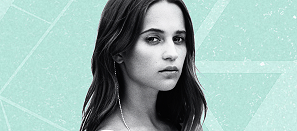I never personalize anything because I think that can be dangerous. For me the best way is – this may sound pretentious – but it’s to breathe the character and get into the psychology of it.
I was about 14 when I started with a theater group, it was like a stage group on the weekends alongside school. And it was run by a group of guys who’d been to drama school themselves in London. So they introduced us to techniques that they’d learn about and they kind of informed us about improvisation and screenwriting and all of that stuff. So it was really there that I started to really love it and enjoy it.
[on her Bouquet of Barbed Wire (2010) character] The role as a whole was very intriguing, especially as a part for a young girl. There was a lot to do and a lot that happened to Prue. And I think teenage years are a really incredible time to focus on because you’re really changing as a person.
It is a difficult one, as you get scripts where women are just objects. If a role has been too one-dimensional I have turned it down. I still try to be a feminist in some tiny way. There is more for women in terms of character roles now. Judi Dench and Maggie Smith have constantly changed over the years and challenged themselves with different roles. That’s impressive.
[About her name, Poots] In Europe it’s OK, in America, it’s game over.
In 1962 being “feminine” was seen as an achievement in itself but unfortunately it’s not so far away from the confines of what a woman is supposed to be now, the obsession with being thin, not taking up too much space, and your voice getting higher when you speak to men. It still exists, it’s very pervasive.
[About working in an adult world from a young age] It’s kind of dazzling, and you can ride on being charming and somewhat wide-eyed about things. Sometimes I feel like an absolute stunted girl-woman and sometimes I feel like, I got this.
I will always remember the read-through for A Late Quartet. Philip Seymour Hoffman was reading from the script, sitting at that table in that very sterile room with a bunch of strangers, but he just lived it, he became somebody else.
[About feeling vulnerable around the powerful people in the movie business] I still do, every day. I don’t think that’s ameliorated by how much you’ve done or who you’ve been around. Protecting yourself as a young actor is made harder, because you have to be emotionally available, but at the same time you want to be impervious to the bullshit if people have other agendas professionally or anything else. It’s a balance that takes a while to figure out.
The first time I did nudity which wasn’t sheet up to my chest was on Frank & Lola, and that was a very conscious decision because it was a director I’d learnt to trust, and it made sense for the opening of that film, so I didn’t question whether I should have a bra on or not. I also think it’s really, really terrible for any young actress to feel pressured to do that. I’ve been in plenty of situations where a producer has said, ‘Oh yeah, we were thinking it would be important to have this sex scene here, it’ll only take half an hour,’ and you just go ‘no’, and get prepared to walk off the set. I have no qualms about turning on someone and telling them to f— off, basically.





















Recent Comments